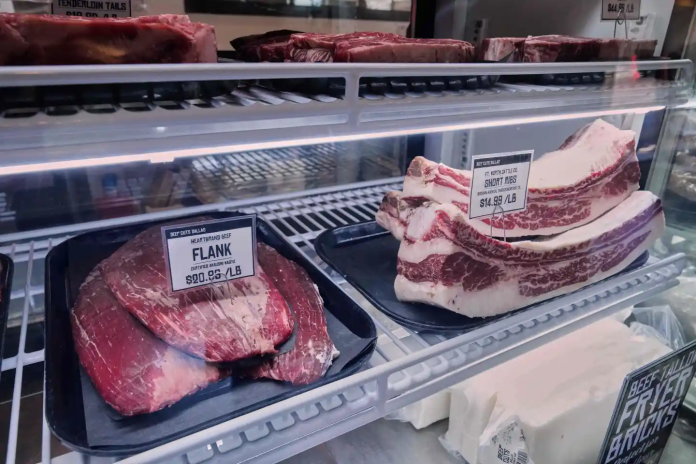Australia eased biosecurity restrictions blocking US beef imports since 2003, prompting President Donald Trump to declare the US would sell “so much” beef to Australia, according to Reuters.
The move follows decades of bans over mad cow disease (BSE) concerns and comes as Australia faces 10% baseline US tariffs on all exports, plus 50% levies on steel and aluminium.
Trump celebrated the decision on Truth Social, proclaiming US beef “undeniable and irrefutable proof that US beef is the safest and best in the entire world” and warning other nations refusing American products were “on notice.”
US Trade Representative Jamieson Greer labelled Australia’s prior restrictions “unjustified barriers,” framing the relaxation as a “major milestone” for US ranchers.
Australia’s Agriculture Minister Julie Collins, however, insisted the move was “purely based on science,” citing improved US cattle tracing systems that now monitor livestock movements across Mexico and Canada—previously a dealbreaker.
The decision triggered domestic criticism. National Party leader David Littleproud accused Prime Minister Anthony Albanese of “trading away biosecurity” to appease Trump, demanding independent scientific review. However, Cattle Australia CEO Will Evans acknowledged “faith” in biosecurity protocols but stressed preserving US ties was critical for Australia’s $9.2 billion beef export market.
The biosecurity shift occurs amid a tense trade standoff. Trade minister Don Farrell condemned Trump’s tariffs as not “the act of a friend,” warning a global shift toward “power-based” trade could make Australia “suffer for generations” through inflation and slowed growth.
Trump’s administration framed the Australian concession as a template for pressuring other nations, with the authorities vowing to “Make Agriculture Great Again.” However, as Farrell conceded, the tariffs battle remains unresolved:
I don’t think we should give up on the ambition to get those tariffs removed.
